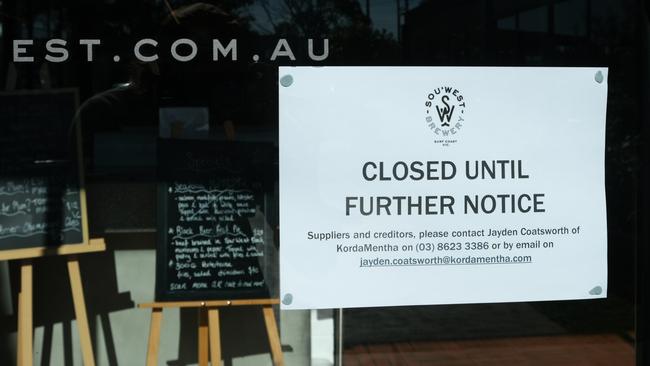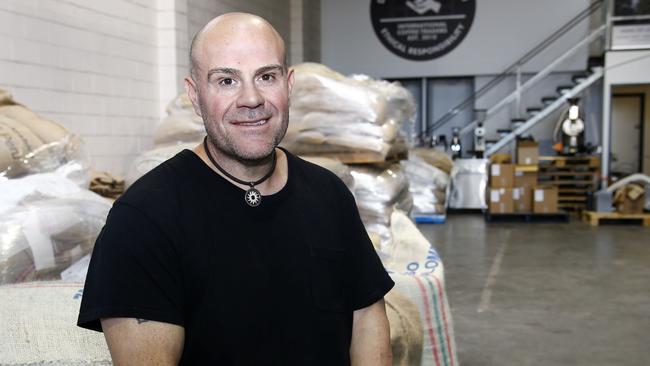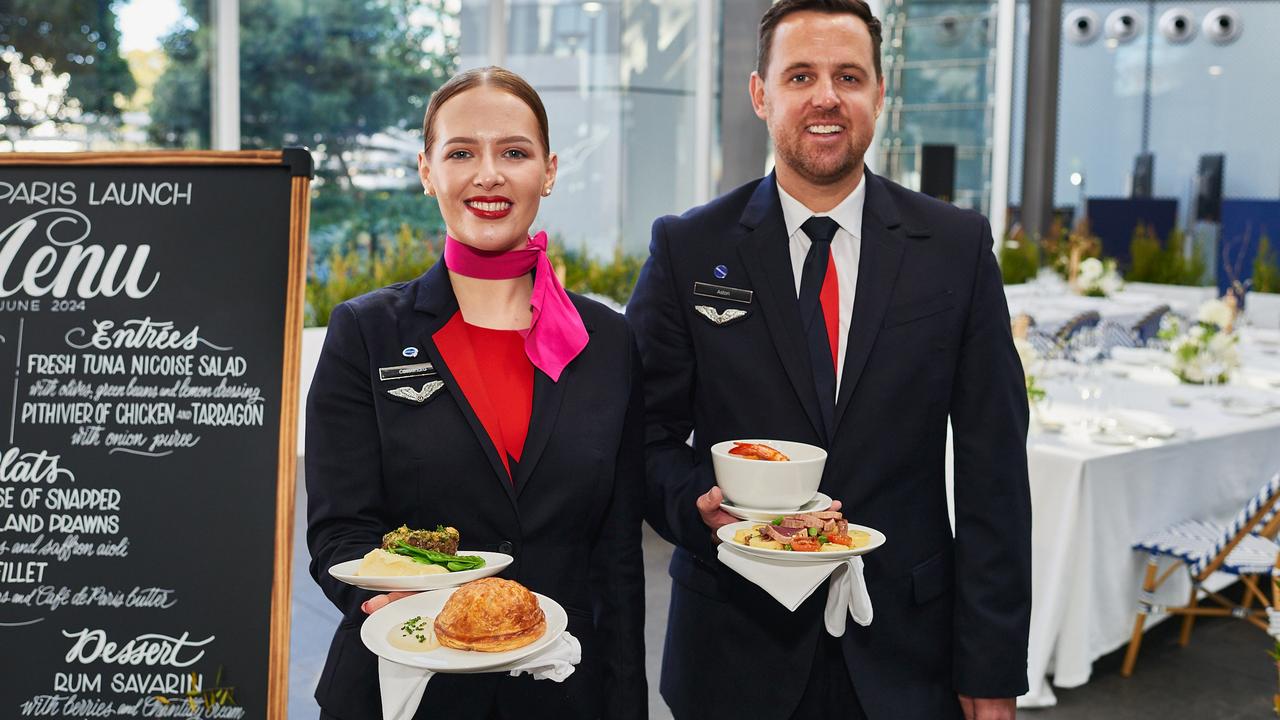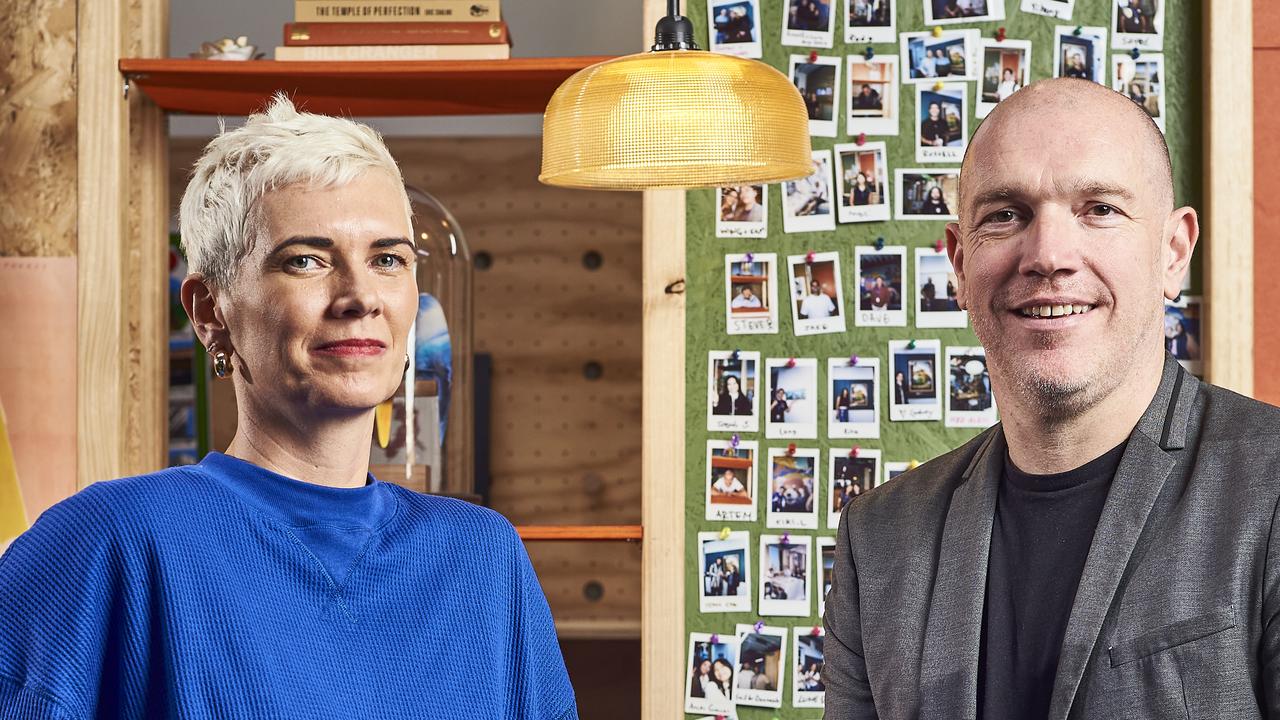Business owners put homes on the line to pay debts
Company directors are being forced to refinance the family home to meet debts and ongoing expenses amid the deteriorating economic downturn.

Business
Don't miss out on the headlines from Business. Followed categories will be added to My News.
Company directors are being forced to refinance their family homes to meet debts and ongoing expenses amid the deteriorating economic downturn.
Liquidations represent about 65 per cent of company insolvencies, compared to about 25 per cent being saved through a restructuring, according to insolvency expert Jarvis Archer.
“This indicates most companies facing insolvency are being closed, rather than just one in four being rescued,” said Mr Archer, head of restructuring at Queensland-based Business Reset.
Insolvencies nationwide in the just-completed financial year topped 11,000 for the first time, according to preliminary figures calculated by Mr Archer using ASIC notices.
“It was the biggest financial year of company insolvencies on record,” he said.
“The previous peak recorded during the global financial crisis has been exceeded.
“Business owners not only need to downsize their businesses, but their personal positions, which is a much harder task, particularly when asset prices have dropped. It can involve selling cars, moving and even selling the family home.”

Mr Archer said businesses had purchased new cars and equipment in previous years, encouraged by tax incentives and a buoyant property market.
“These purchases, financed by loans, no doubt seemed reasonable when interest rates were low and their companies were making money,” he said.
“These companies often did well in 2021 and 2022, but what we’re seeing at the moment is a lot of companies being weighed down by living expenses and owners are suffering.”
Mr Archer said the economic bubble had now burst and business owners weren’t prepared to deal with soaring inflation, rising interest rates, and falling revenue.
“As a result, post-Covid tax debts are becoming more common and directors are having to refinance their house to meet debts and ongoing expenses,” he said.
“These are signs showing deepening cracks in the economy.
“National businesses and 30-plus-year-old companies – the ones that survived the GFC – are all falling into insolvency. It’s reaching beyond just construction, hospitality and retail – all sectors are being impacted. As people spend less, businesses spend less and that flows through the economy.
“To some degree, small businesses failures have been dismissed as not representative of the larger economy, but evidently, small businesses are the canary in the mine.”
Mr Archer said businesses that were whiplashed by the cash injected into the economy during the pandemic, low interest rates and government spending incentives, were now being snapped back to reality as everything slowed and tightened.
Phillip Di Bella, the founder of Brisbane-based The Coffee Commune, said up to 15 per cent of cafes faced closure amid mounting costs and falling discretionary spending.
“People just don’t have the money to spend,” Mr Di Bella said.
“You can have a cafe full of people, but if they are only buying one coffee, you are going broke.
“We are expecting a big clean-out of between 10 and 15 per cent of cafes.”

Mr Di Bella said hiking the interest rate to control inflation was not working as governments had to constrain their own spending.
“People are cutting back – instead of having two coffees, they are buying one, or instead of buying breakfast and lunch in a cafe, they are having brunch,” he said.
He said governments could help by either abolishing or lifting the threshold on payroll tax or reducing other charges.
“We are still not making a profit at the Coffee Commune, but still have to pay payroll tax,” he said.
“Low wages are not the answer. It is getting rid of the other costs like payroll tax, fringe benefit tax or banking charges on debit accounts.”
Mr Di Bella, who sold his Di Bella Coffee business to ASX-listed RFG in 2014, recently launched a new app designed to help cafe owners access expert knowledge, industry information, and partner discounts to survive tough times.
Australian Business Growth Fund chief executive Anthony Healy said small businesses were increasingly doing it tough amid higher interests rates and costs as well as consumer belt-tightening.
“Unlike larger businesses, smaller business – anything between $20m and $30m in turnover – are closer to a cash crunch,” said Mr Healy, whose company takes equity stakes in promising SMEs that needed a capital injection
“A bank may not necessarily call in loans but the business will not be able to borrow.”
More Coverage
Originally published as Business owners put homes on the line to pay debts





